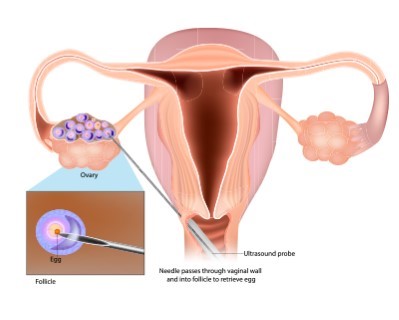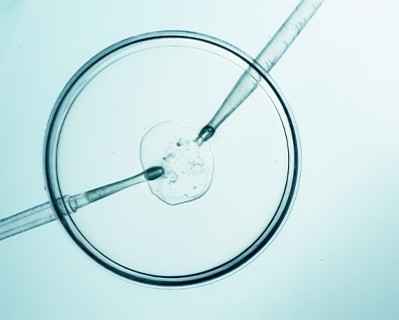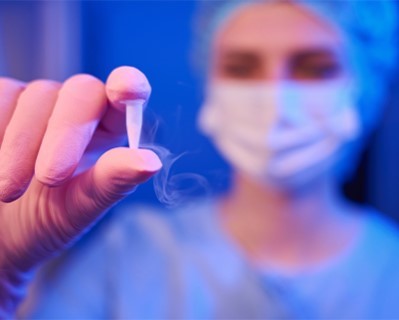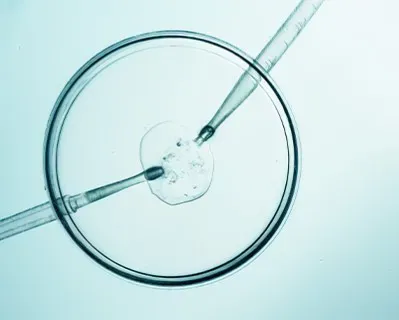Infertility Treatments

Egg Retrieval
- Purpose: Collects eggs from the ovaries for fertilization.
- Procedure: A needle is inserted into the ovarian follicles under ultrasound guidance to retrieve the eggs.
-
Note: The information provided here applies to standard Egg Retrieval procedures under typical conditions. However, specifics may vary based on individual factors, such as the patient’s overall health, the response to fertility medications, and any complications that might arise during or after the procedure. The complexity of the procedure and the patient’s unique circumstances will also impact the recovery process.
Inpatient/Outpatient
Egg retrieval is typically performed as an outpatient procedure, allowing most patients to return home the same day after a short recovery period.Hospital Stay Duration
Patients undergoing egg retrieval generally do not require an overnight hospital stay. They are usually discharged a few hours after the procedure, once they have recovered from sedation or anesthesia and are stable.Type of Anesthesia
Egg retrieval is commonly performed under light sedation or general anesthesia to ensure the patient is comfortable and pain-free during the procedure. The choice of anesthesia depends on the patient’s preference and the healthcare provider’s recommendation.Travel After Procedure
Patients are generally advised to avoid long-distance travel for at least 24 to 48 hours after the procedure to allow for initial recovery and to monitor for any potential complications, such as abdominal discomfort or bloating.Pre-procedure Preparation
Preparation for egg retrieval involves following specific instructions from the fertility specialist, such as administering hormonal injections to stimulate the ovaries, fasting before the procedure, and adjusting medications as needed. Patients should also arrange for someone to drive them home after the procedure.Procedure Duration
The egg retrieval procedure typically lasts between 20 to 30 minutes. During the procedure, the fertility specialist uses a thin needle guided by ultrasound to retrieve eggs from the ovaries through the vaginal wall.Recovery Time
Recovery from egg retrieval is usually quick, with most patients resuming light activities the next day. However, it’s important to avoid strenuous activities for a few days to allow the body to recover fully. Some patients may experience mild cramping, bloating, or spotting, which should resolve within a few days.Estimated Cost
The cost of egg retrieval can vary depending on factors such as the fertility clinic’s expertise, the medications used, and geographic location. Patients should consult their fertility clinic for accurate cost information, including any additional costs for medications or follow-up treatments.Post-procedure Care
Post-operative care for egg retrieval includes managing any discomfort and monitoring for signs of complications, such as ovarian hyperstimulation syndrome (OHSS), which can occur in response to fertility medications. Patients should follow their healthcare provider’s instructions regarding rest, fluid intake, and any prescribed medications. Follow-up appointments are important to assess the number and quality of the retrieved eggs and to plan the next steps in the fertility treatment process. Any signs of complications, such as severe pain, excessive bloating, or difficulty breathing, should be reported to the healthcare provider immediately.

Insemination and Fertilization
- Purpose: Fertilizes the eggs with sperm.
- Procedure: Sperm is either mixed with the eggs (conventional insemination) or injected directly into the egg (ICSI).
-
Note: The information provided here applies to standard Insemination and Fertilization procedures under typical conditions. However, specifics may vary based on individual factors, such as the patient’s overall health, fertility history, and any complications that might arise during or after the procedure. The complexity of the procedure and the patient’s unique circumstances will also impact the success and recovery process.
Inpatient/Outpatient
Insemination and fertilization procedures, including intrauterine insemination (IUI) and in vitro fertilization (IVF), are typically performed as outpatient procedures, allowing most patients to return home the same day after a short recovery period.Hospital Stay Duration
Patients undergoing insemination or fertilization generally do not require an overnight hospital stay. They are usually discharged shortly after the procedure, once they have recovered from any sedation or anesthesia.Type of Anesthesia
Insemination, such as IUI, typically does not require anesthesia, though mild sedation may be offered for patient comfort. Fertilization procedures, such as egg retrieval during IVF, are usually performed under light sedation or general anesthesia to ensure the patient’s comfort and minimize discomfort.Travel After Procedure
Patients are generally advised to avoid long-distance travel for at least 24 to 48 hours after fertilization procedures to allow for initial recovery and to monitor for any potential complications, such as cramping or discomfort.Pre-procedure Preparation
Preparation for insemination and fertilization involves following specific guidelines from the fertility specialist, such as administering fertility medications, tracking ovulation, and fasting before any procedures requiring sedation. Patients should also arrange for transportation home if sedation or anesthesia is used.Procedure Duration
The duration of insemination procedures like IUI is typically brief, lasting about 10 to 15 minutes. Fertilization procedures, such as egg retrieval during IVF, may take 20 to 30 minutes. The fertilization process in a lab may continue for several days as embryos develop before being transferred.Recovery Time
Recovery from insemination is usually immediate, allowing patients to resume normal activities the same day. Recovery from fertilization procedures like egg retrieval may take a day or two, with some mild cramping or discomfort. Patients are generally advised to avoid strenuous activities for a few days to ensure proper recovery.Estimated Cost
The cost of insemination and fertilization procedures can vary depending on the fertility clinic, the complexity of the treatment, and geographic location. Patients should consult their fertility specialist for detailed cost information, including any additional costs for medications, monitoring, and follow-up treatments.Post-procedure Care
Post-procedure care for insemination and fertilization includes following the fertility specialist’s instructions, managing any mild discomfort, and monitoring for signs of complications. Patients undergoing IVF may need to take hormone supplements to support early pregnancy. Follow-up appointments are essential to monitor progress and determine the success of the procedure. Any signs of complications, such as severe pain, excessive bloating, or unusual symptoms, should be reported to the healthcare provider immediately.
_20240719142832154326__0.webp)
Intracytoplasmic Sperm Injection (ICSI)
- Purpose: Assists fertilization by injecting a single sperm into an egg.
- Procedure: A single sperm is injected directly into the cytoplasm of an egg.
-
Note: The information provided here applies to standard Intracytoplasmic Sperm Injection (ICSI) procedures under typical conditions. However, specifics may vary based on individual factors, such as the patient’s overall health, the quality of the sperm and eggs, and any complications that might arise during or after the procedure. The complexity of the procedure and the patient’s unique circumstances will also impact the success and recovery process.
Inpatient/Outpatient
ICSI is typically performed as part of an in vitro fertilization (IVF) cycle, which is an outpatient procedure. Patients can usually return home the same day after egg retrieval and fertilization.Hospital Stay Duration
Patients undergoing ICSI generally do not require an overnight hospital stay. They are typically discharged a few hours after egg retrieval, once they have recovered from any sedation or anesthesia.Type of Anesthesia
Egg retrieval for ICSI is usually performed under light sedation or general anesthesia to ensure the patient’s comfort. The ICSI procedure itself, which involves injecting a single sperm into an egg, is done in the laboratory and does not require the patient's presence.Travel After Procedure
Patients are generally advised to avoid long-distance travel for at least 24 to 48 hours after egg retrieval to allow for initial recovery and to monitor for any potential complications, such as cramping or bloating.Pre-procedure Preparation
Preparation for ICSI involves following specific instructions from the fertility specialist, such as administering hormonal injections to stimulate the ovaries, fasting before egg retrieval, and adjusting medications as needed. Patients should arrange for transportation home after egg retrieval.Procedure Duration
The egg retrieval process typically takes about 20 to 30 minutes. The ICSI procedure itself, where a sperm is injected directly into an egg, is performed in the laboratory and takes only a few minutes per egg. Fertilization results are usually available the next day.Recovery Time
Recovery from egg retrieval is generally quick, with most patients resuming light activities the following day. However, patients should avoid strenuous activities for a few days. Mild cramping, bloating, or spotting may occur but should resolve within a few days.Estimated Cost
The cost of ICSI can vary depending on factors such as the fertility clinic’s expertise, the complexity of the treatment, and geographic location. Patients should consult their fertility specialist for detailed cost information, including additional costs for medications, monitoring, and follow-up treatments.Post-procedure Care
Post-procedure care for ICSI includes managing any discomfort after egg retrieval and following the fertility specialist’s instructions regarding rest, fluid intake, and medications. Follow-up appointments are important to monitor the development of embryos and to plan the embryo transfer. Any signs of complications, such as severe pain, excessive bloating, or unusual symptoms, should be reported to the healthcare provider immediately.

Cryopreservation of Embryos
- Purpose: Freezes and stores surplus embryos for future use.
- Procedure: Embryos are frozen using a controlled-rate freezing process.
-
Note: The information provided here applies to standard Cryopreservation of Embryos procedures under typical conditions. However, it is important for patients, particularly those seeking care through health tourism, to understand the specifics of the procedure, the legal considerations, and the potential impact on future fertility treatments. Patients should ensure they choose a reputable clinic that adheres to international standards and regulations.
Inpatient/Outpatient
Cryopreservation of embryos is typically performed as an outpatient procedure, as it is a part of the in vitro fertilization (IVF) process. Patients usually return home the same day after the embryo freezing process is completed.Hospital Stay Duration
Patients generally do not require an overnight hospital stay for embryo cryopreservation. The procedure is done after the embryos have been created and monitored in the laboratory, and patients can resume normal activities shortly after the egg retrieval or embryo transfer.Type of Anesthesia
There is no anesthesia required for the cryopreservation process itself, as it occurs in the laboratory. However, if the cryopreservation follows an egg retrieval procedure, light sedation or general anesthesia may have been used during the retrieval.Travel After Procedure
Patients, particularly those traveling for health tourism, can typically travel shortly after the procedure. However, it is advisable to avoid long-distance travel for at least 24 to 48 hours after egg retrieval to allow for recovery and monitoring for any potential complications.Pre-procedure Preparation
Preparation for cryopreservation involves following the IVF protocol provided by the fertility specialist. This includes administering hormonal injections to stimulate the ovaries and preparing for egg retrieval. It is essential for international patients to have a clear understanding of the local laws regarding the storage and use of frozen embryos.Procedure Duration
The actual cryopreservation process is handled in the laboratory and involves carefully freezing the embryos using specialized techniques to ensure their viability for future use. The freezing process itself takes only a few hours once the embryos are ready.Recovery Time
Since cryopreservation is part of the IVF cycle, the recovery is linked to the egg retrieval and embryo transfer phases. Patients typically recover quickly, with most resuming normal activities within a day or two after egg retrieval.Estimated Cost
The cost of cryopreservation of embryos can vary widely depending on the clinic’s expertise, the length of storage, and the geographic location. Patients should consult their fertility specialist for detailed cost information and understand any additional fees associated with long-term storage and future thawing of embryos.Post-procedure Care
Post-procedure care after cryopreservation focuses on managing any discomfort from the preceding egg retrieval and monitoring the patient’s overall health. For patients traveling internationally for this procedure, it’s crucial to maintain communication with the clinic for updates on the status of the embryos and to plan any future treatments. Patients should also be informed about the legal aspects of embryo storage, including the duration of storage and the options for use or disposal.Legal and Ethical Considerations
For patients considering cryopreservation abroad, it’s vital to understand the legal and ethical implications of storing embryos in another country. Laws regarding the use, storage duration, and ownership of embryos can vary significantly between countries. Patients should ensure they have a clear agreement with the clinic regarding these aspects and are aware of their rights and responsibilities.
_20240719155455838465__0.webp)
Preimplantation Genetic Testing (PGT)
- Purpose: Screens embryos for genetic abnormalities before transfer.
- Procedure: A few cells are biopsied from the embryo and tested for genetic conditions.
-
Note: The information provided here applies to standard Preimplantation Genetic Testing (PGT) procedures under typical conditions. For patients seeking this procedure through health tourism, it’s essential to understand the specifics of PGT, the legal regulations in the country where the procedure is performed, and the importance of choosing a clinic that follows international best practices. PGT is a critical step in fertility treatments for patients looking to ensure the health of their future children, especially when there is a known risk of genetic disorders.
Inpatient/Outpatient
PGT is part of the in vitro fertilization (IVF) process and is typically performed as an outpatient procedure. Patients can usually return home the same day after the embryo biopsy is conducted.Hospital Stay Duration
Patients generally do not require an overnight hospital stay for PGT. The genetic testing occurs in a specialized laboratory after the embryos have been created and biopsied, and patients can resume normal activities shortly after the egg retrieval or embryo transfer.Type of Anesthesia
There is no anesthesia required for the PGT procedure itself, as the testing is performed on embryos in the laboratory. Anesthesia may be used during the egg retrieval phase of IVF, which precedes PGT.Travel After Procedure
Patients, especially those traveling internationally for health tourism, are generally advised to avoid long-distance travel for at least 24 to 48 hours after egg retrieval to allow for recovery. However, travel after the PGT process itself is typically not restricted, as the testing is done in the lab.Pre-procedure Preparation
Preparation for PGT involves following the IVF protocol, which includes hormonal stimulation, egg retrieval, and embryo creation. Patients should discuss the specifics of PGT with their fertility specialist, including which genetic conditions will be tested for. International patients should be aware of local regulations regarding genetic testing and the use of embryos.Procedure Duration
The PGT procedure itself involves taking a small biopsy from the embryos for genetic testing. This is done in the lab after the embryos have developed to a certain stage, typically on day 5 or 6. The testing process can take several days, depending on the complexity of the tests being conducted.Recovery Time
Since PGT is a laboratory procedure, the recovery is related to the egg retrieval and embryo transfer phases of IVF. Patients typically recover quickly from these procedures, with most resuming normal activities within a day or two after egg retrieval.Estimated Cost
The cost of PGT can vary significantly depending on the number of embryos tested, the complexity of the genetic screening, the fertility clinic’s expertise, and geographic location. Patients should consult their fertility specialist for detailed cost information, including additional fees for the genetic tests and the IVF process.Post-procedure Care
Post-procedure care after PGT includes managing any discomfort from the preceding egg retrieval and ensuring the patient is prepared for embryo transfer. For patients undergoing health tourism, it’s crucial to maintain communication with the clinic for results from the genetic tests and to plan the next steps in the fertility treatment. Patients should also be aware of the legal and ethical considerations associated with PGT, particularly in the context of selecting embryos based on genetic traits.Legal and Ethical Considerations
Patients considering PGT, especially in a different country, should be fully informed about the legal regulations surrounding genetic testing and embryo selection. Laws can vary significantly between countries regarding what genetic traits can be tested, how embryos are handled, and the ethical implications of embryo selection. It’s vital to choose a clinic that adheres to ethical standards and provides clear information on the legal aspects of PGT.
_20240719143002974690__0.webp)
Frozen Embryo Transfer (FET)
- Purpose: Transfers previously frozen embryos into the uterus.
- Procedure: Thawed embryos are transferred to the uterus.
-
Note: The information provided here applies to standard Frozen Embryo Transfer (FET) procedures under typical conditions. For patients seeking this procedure through health tourism, it is crucial to understand the specifics of FET, the legal regulations in the country where the procedure is performed, and the importance of choosing a reputable clinic that follows international best practices. FET is a vital option for patients who have previously undergone IVF and wish to use their frozen embryos for pregnancy.
Inpatient/Outpatient
FET is typically performed as an outpatient procedure, allowing patients to return home the same day after the embryo transfer is completed.Hospital Stay Duration
Patients undergoing FET generally do not require an overnight hospital stay. They are usually discharged shortly after the procedure, once they have recovered from any mild sedation and are stable.Type of Anesthesia
FET is typically performed without anesthesia, as the procedure is minimally invasive and involves transferring the embryo into the uterus using a thin catheter. Some patients may receive a mild sedative to help them relax during the procedure.Travel After Procedure
Patients, especially those traveling for health tourism, are generally advised to avoid long-distance travel for at least 24 to 48 hours after the embryo transfer to allow for initial implantation and to monitor for any potential complications.Pre-procedure Preparation
Preparation for FET involves following a specific protocol from the fertility specialist, which may include hormonal treatments to prepare the uterus for implantation, as well as blood tests and ultrasounds to monitor the lining of the uterus. International patients should ensure they have all necessary documentation and medical records and should be aware of the local regulations regarding embryo transfers.Procedure Duration
The FET procedure itself is relatively quick, usually lasting about 10 to 15 minutes. During the procedure, the thawed embryos are carefully transferred into the uterus using a catheter. The number of embryos transferred depends on the patient’s specific circumstances and the recommendations of the fertility specialist.Recovery Time
Recovery from FET is typically immediate, with most patients able to resume light activities the same day. However, patients are usually advised to rest for the remainder of the day and avoid strenuous activities for a few days to allow for optimal conditions for embryo implantation.Estimated Cost
The cost of FET can vary depending on factors such as the clinic’s expertise, the medications required, and geographic location. Patients should consult their fertility clinic for detailed cost information, including any additional fees for medications, monitoring, and follow-up appointments.Post-procedure Care
Post-procedure care for FET includes following the fertility specialist’s instructions, which may involve taking hormone supplements to support the early stages of pregnancy. Patients should monitor for any signs of complications, such as cramping or spotting, and maintain communication with their clinic to report symptoms and receive guidance. A follow-up appointment is usually scheduled to confirm pregnancy through a blood test.Legal and Ethical Considerations
Patients considering FET, particularly in a different country, should be informed about the legal regulations surrounding the use of frozen embryos. Laws regarding the storage, transfer, and potential disposal of embryos can vary significantly between countries. It’s essential to choose a clinic that adheres to ethical standards and provides clear information about the legal aspects of using frozen embryos.

IVF Treatments: Trust and Technology for Your Dreams
If you’re planning an IVF treatment today, overlooking the deeper aspects of your options can be a significant mistake. This is where Türkiye’s adherence to international safety standards and advanced technologies stands out.
In Türkiye, processes for storing embryos, sperm, and eggs are strictly guided by your instructions. Unused materials are disposed of safely and cannot be misused, thanks to stringent legal regulations. This ensures not only your rights and privacy but also guarantees that your treatment process remains within ethical boundaries.
While many centers worldwide may offer attractive promises, it is crucial to scrutinize the ethical standards, legal frameworks, and use of technology behind these promises. In particular, the prohibition of donor practices in Türkiye means the process is entirely under your control. Your unused biological materials are never repurposed and are securely disposed of.
Moreover, you should not overlook the role of innovative technologies in improving IVF success rates. Advanced tools like embryoscopes, time-lapse imaging systems, and preimplantation genetic testing (PGT) enhance the selection of healthy embryos and maximize success rates.
When making such an important decision for yourself and your family, consider not just financial advantages but also the benefits of safety, ethical standards, and cutting-edge technology. Choose Türkiye for its reliability and superiority in advanced technology as the center to fulfill your dreams.
Remember, this is not just a treatment but a gateway to a new chapter in your life. We are ready to deliver this responsibility to you and your loved ones in the most secure and innovative way.
HTMR Health: Building Your Dreams with Confidence.
